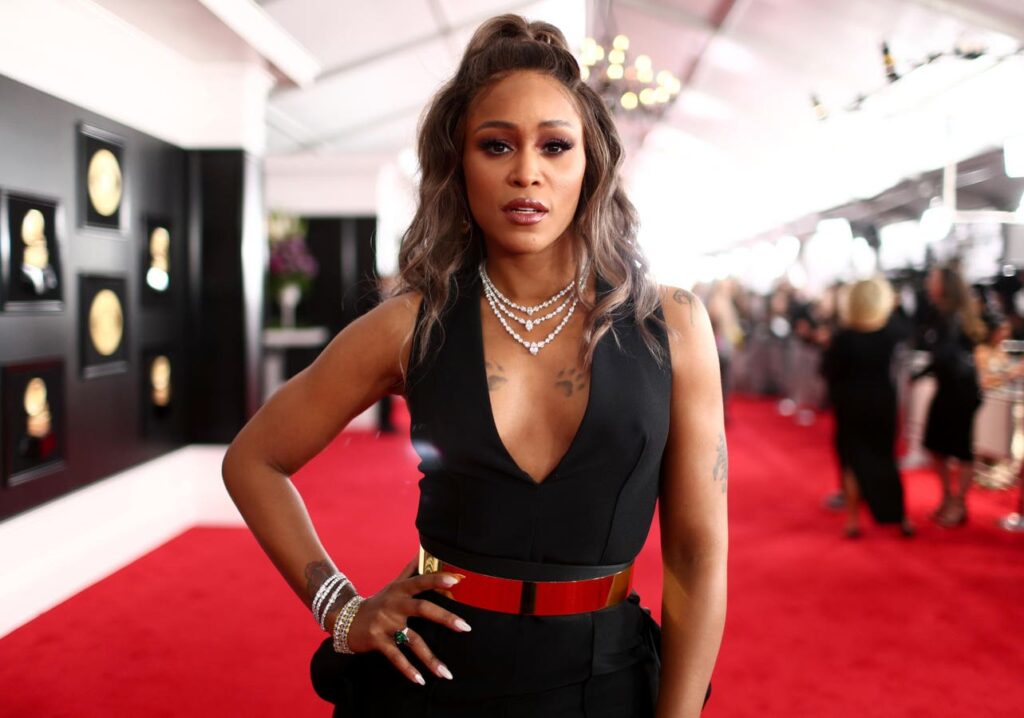It was once believed that rap and hip-hop would be a passing fad, yet those genres along with R&B have dominated the last decade of music, with people betting big on the future worth of nostalgia listening. Now hip-hop icon Eve is parting ways with her music catalog for an eight-figure deal, in the ballpark between $25 million and $50 million, according to Music Business Worldwide. As the value of music catalogs soars, artists like Eve are weighing the pros and cons of parting with their intellectual property, a decision that can have lasting impacts on their careers and legacies.
The Breakdown You Need To Know:
Iconoclast, a music management company, acquired the publishing rights to the Grammy-winning rapper and actress’s entire catalog. The acquisition encompasses Eve’s complete body of work, including her groundbreaking 1999 debut album “Let There Be Eve…Ruff Ryders’ First Lady.” This album was a significant milestone in Eve’s career, helping her become the third female rapper in history to reach No. 1 on the Billboard 200. The deal also includes other hit singles and collaborations that have defined Eve’s musical legacy.
“Eve’s contributions to hip hop and popular culture are unparalleled. She’s not only a great artist but a true pioneer for women in the genre,” said Olivier Chastan, founder and CEO of Iconoclast in a statement.
Iconic Catalog Sales:
Eve’s catalog sale is part of a broader trend in the hip-hop community, with several prominent artists choosing to sell their music rights in recent years, CultureBanx reported. For instance, RZA sold a 50% stake in his catalog to Hipgnosis in 2020. Similarly, Future sold a portion of his musical catalog to Influence Media Partners for a reported $75 million, encompassing 612 songs from 2004 to 2020.
Dr. Dre sold his assets to Universal Music and Shamrock Holding, including artist royalties from N.W.A. and two solo albums, along with producing royalties and other entities, for more than $200 million. More recently, Metro Boomin secured a deal worth $70 million by selling a portion of his publishing catalog to Shamrock. These transactions highlight the growing interest in hip-hop catalogs among investors and the substantial financial opportunities they present for artists.
However, it’s worth noting that hip-hop’s share in the overall catalog sales market is still relatively small. For example, Hipgnosis, a major player in catalog acquisitions, has only one percent of its portfolio value in hip-hop. This suggests that there’s potential for further growth in hip-hop catalog sales as the genre continues to dominate streaming platforms and global music consumption.
Streaming’s Valuable Influence:
Streaming has become a dominant force in the music industry, reshaping how music is consumed and valued. In 2023, global recorded music revenues increased by 10.2%, largely driven by paid streaming subscriptions. This growth has had a substantial impact on music catalog values, with streaming accounting for 62% of the average multiple of net publisher’s share paid for a publishing catalog.
The influence of streaming on catalog valuations is evident in the dramatic increase in average multiples over the past decade. From 2011 to 2021, the average catalog multiple rose from 8.6 to 20.7. This surge coincided with streaming’s growth from virtually nothing to 65% of global recorded music revenue.
Expectations for future distributions from the Music Licensing Collective and the development of new digital sources such as TikTok are greatly contributing to positive growth. Additionally, the average multiple of private music publishing catalogs increased to 17.2 times net publisher’s share in 2023, up from 16.7 times in 2022.
As the market shifts towards more niche-focused funds, as investors seek potentially undervalued catalogs in genres like EDM, Latin music, and Asian markets. This diversification is allowing the market to spread in breadth, with more deals occurring across Europe, South Korea, and Latin America. It’s already proven to be quite valuable focusing on these demographics because Hipgnosis sold 29 Latin artists including Shakira and hip-hop music catalogs for $465 million to pay off its debt.
Situational Awareness:
With the trend of music catalog sales continuing to reshape the music industry landscape, offering artists like Eve, both opportunities and challenges. Looking ahead, the market for music catalogs shows signs of stability and potential growth, with projections indicating steady multiples in the coming years.
Read the full article here











